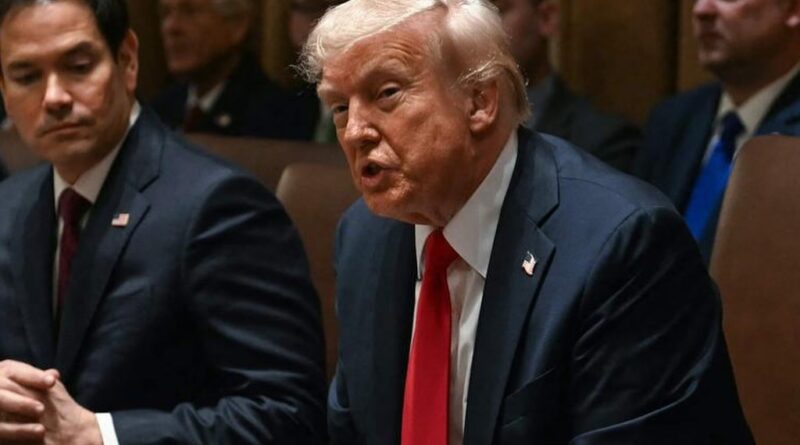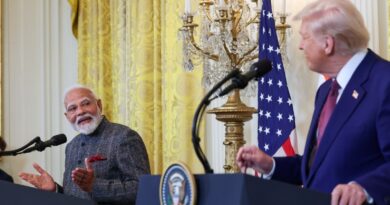US President Claims India to Halt Russian Oil Imports After Modi’s Assurance
Amid escalating US tariffs, Trump reveals private talks with PM Modi aimed at curbing Russia’s war funding through energy sales
New York, October 16, 2025 – In a White House press briefing on Thursday, US President Donald Trump announced that India has pledged to end its purchases of oil from Russia, citing a personal assurance from Prime Minister Narendra Modi. The statement comes as Washington intensifies economic measures against New Delhi over its continued reliance on discounted Russian crude amid the ongoing Ukraine conflict.
Trump, addressing reporters, described Modi as a close ally, emphasizing their strong rapport. “Prime Minister Modi is my friend—we have excellent relations,” he said. “I wasn’t happy about India buying oil from Russia, but today he assured me they won’t anymore. Now we need to get China to do the same.” The president framed the move as a step toward pressuring Moscow to withdraw from Ukraine, alleging that revenues from such oil sales fuel the invasion.
This revelation follows the imposition of steep US tariffs on Indian goods. Back in August 2025, the administration levied a 25% “reciprocal” tariff—mirroring duties India places on American imports—effective from August 7. Just weeks later, on August 27, an additional 25% penalty was added specifically for Russia’s oil exports to India, bringing the total to 50%. White House Press Secretary Karolina Levitt explained these as “secondary pressure” tactics to isolate Russia economically and hasten peace talks.
India has yet to officially confirm any shift in its energy policy. Recent meetings between Modi and Sergio Gor, Trump’s nominee for US ambassador to India, on October 11 may have paved the way for this reported commitment. Gor relayed to Trump that Modi expressed deep admiration for him, prompting a light-hearted quip from the president: “He loves Trump—though let’s not misinterpret that; I don’t want to ruin anyone’s political career.”
Trump noted the transition won’t be immediate, acknowledging logistical hurdles. “They can’t stop overnight; there’s a process, but it’ll be wrapped up soon,” he added. He also reflected on India’s political landscape, praising Modi’s longevity in office compared to frequent government changes he has observed over the years.
The US has long viewed India’s Russian oil imports as undermining global sanctions. Since Russia’s invasion of Ukraine in February 2022, Europe largely boycotted Russian energy, redirecting supplies eastward. India, the world’s third-largest oil importer, ramped up purchases dramatically—from a mere 0.2% of its imports in 2021 to Russia becoming its top supplier by 2025, delivering about 1.67 million barrels per day, or roughly 37% of total needs.
For India, the appeal lies in cost savings and stability. Russian crude remains cheaper than alternatives, even as initial discounts of up to $30 per barrel have narrowed to $3-6. Long-term contracts, such as Reliance Industries’ December 2024 agreement for 500,000 barrels daily over a decade, complicate any abrupt halt. Moreover, Indian officials argue that absorbing Russian oil helps stabilize global prices; a sudden cutoff could spike rates, reminiscent of the $137 per barrel peak in March 2022.
Should India pivot away from Russia, it has viable alternatives to meet its 80% import dependency:
- Iraq: The second-largest supplier, covering 21% of needs.
- Saudi Arabia: Third in line, providing 15% or about 700,000 barrels daily.
- United States: Imports doubled to 271,000 barrels per day in early 2025, reaching 7% by July.
- African nations: Nigeria and others are gaining traction, especially for state refineries.
- Others: Options like Abu Dhabi’s Murban crude (UAE), plus emerging supplies from Guyana, Brazil, and Latin America—though often pricier than Russian grades.
The development unfolds against a backdrop of volatile energy markets. India’s Petroleum Minister Hardeep Singh Puri recently hinted at potential petrol and diesel price cuts if crude holds steady at $65 per barrel, possibly within 2-3 months, barring geopolitical flare-ups like Iran-Israel tensions.
Meanwhile, Trump tempered expectations on Friday, telling reporters he’s heard reports of India scaling back but lacks confirmation. “If it happens, great—let’s see,” he said, echoing Reuters accounts of reduced volumes due to US pressure and rising costs. India’s Foreign Ministry held a briefing that evening but offered no clarity on the claims.
As bilateral ties strain under trade frictions, this reported assurance could signal a thaw—or test the limits of Indo-US strategic partnership in countering Russian influence.




